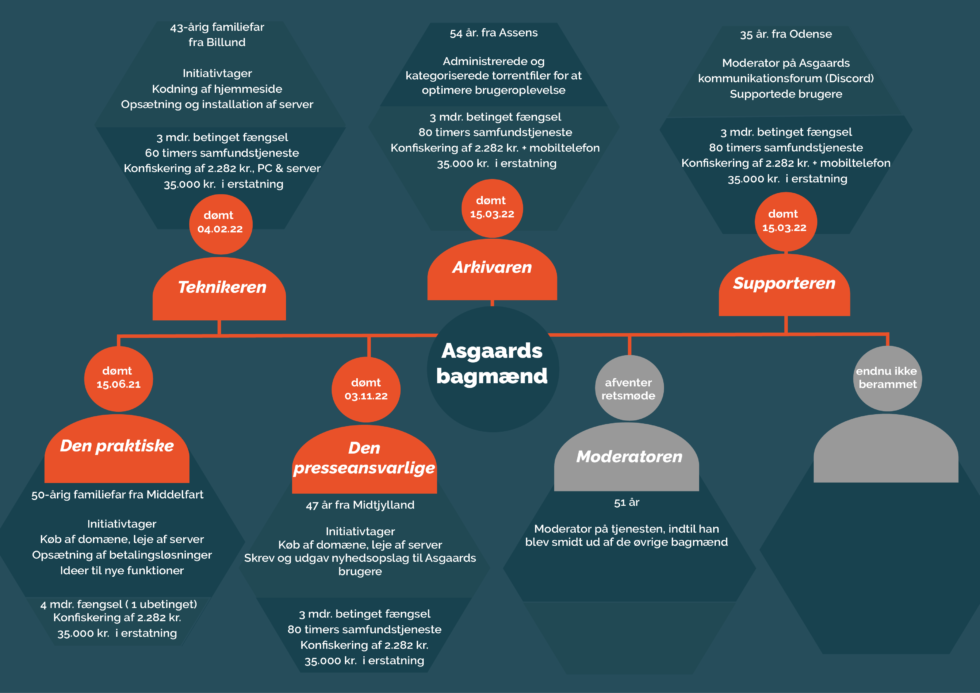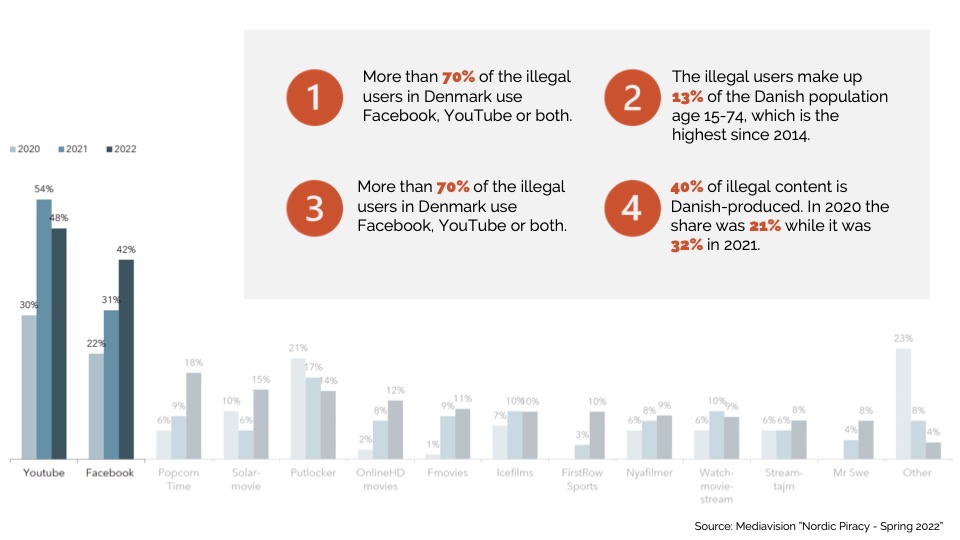-
chevron_right
Torrent Site User Who Transferred 120TB of Pirated Content Avoids Prison
news.movim.eu / TorrentFreak · Monday, 28 November, 2022 - 08:10 · 3 minutes
 Many private torrent sites track user traffic to ensure that when content is downloaded, an agreed amount is uploaded back to the rest of the community.
Many private torrent sites track user traffic to ensure that when content is downloaded, an agreed amount is uploaded back to the rest of the community.
Users can independently maintain their own transfer records, which help them keep track of overall bandwidth used and compliance with site rules, whenever traffic volume is an important factor.
But whether they’re held locally, on a torrent site, or by an intermediary service, the usefulness of logs is reversed when they fall into the wrong hands.
DanishBytes User Arrested Then Prosecuted
Early November 2021, Denmark’s Public Prosecutor for Special Economic and International Crime (SØIK) announced that six people had been arrested following criminal referrals by Rights Alliance. All were members and/or operators of ShareUniversity and DanishBytes.
Prosecution of site operators is not uncommon but when it’s deemed in the public interest, pirate site users can also face charges. Every case is unique so criteria differ, especially across national borders, but when evidence shows large volumes of infringement, successful prosecutions become more likely. That was the case when a former DanishBytes user was sentenced last week.
According to Danish anti-piracy group Rights Alliance, the 28-year-old man was a regular site member and wasn’t involved in running the site. That being said, evidence showed that for the period January 2021 to November 2021, he downloaded and/or uploaded no less than 3,000 copyrighted works, including movies, TV shows, music, books, audiobooks and comics.
Guilty Plea and Sentencing
Information released by the National Unit for Special Crimes (NSK), a Danish police unit focused on cybercrime, organized crime, and related financial crime, reveals that the user’s traffic statistics interested prosecutors.
“During the period, the man downloaded no less than 100 TB and uploaded no less than 20 TB of copyrighted material,” NSK says.
BitTorrent trackers operating a ratio model usually insist on a better ratio of downloads to uploads but DanishBytes’ situation was out of the ordinary.
The site launched in January 2021 in the wake of other sites being shut down , so had to get going from a standing start with no users. Even when arrests were being made, the site still had a relatively small userbase, which can limit opportunities to upload more. That may have been a blessing in disguise.
Faced with the evidence, the man decided to plead guilty and was sentenced last week at the Court in Vibourg. In common with similar prosecutions recently, he received a suspended conditional sentence of 60 days’ probation, 80 hours of community service, and confiscation of his computer equipment.
“I am satisfied with the verdict. With a sentence of 60 days of suspended imprisonment, the court sends a clear signal that not only the masterminds, but also users of illegal file sharing services can risk being punished,” says Beytullaah Karacan, deputy prosecutor at NSK.
Rights Alliance Welcomes Conviction
The case against the DanishBytes user began with a Rights Alliance investigation and a referral to the police. As part of his sentence, the man must pay the anti-piracy group DKK 5,000 (US$600) in compensation but Rights Alliance director Maria Fredenslund is focused on the deterrent effect of another successful prosecution.
“In the Rights Alliance, we have been very focused on getting those behind illegal file-sharing services convicted. But it is equally important that we bring to justice the users who are on these illegal services and who help to keep the services running,” Fredenslund says.
“It is an important signal to send that it is not only masterminds who risk prison sentences, but also systematic users. Therefore, it is satisfactory that yet another user has been convicted, and we expect more of these lawsuits in the future.”
Earlier this month another DanishBytes user received a suspended sentence for his role on the site. The 34-year-old was user who for two months worked on the site’s staff. Importantly, he also used hacked Netflix credentials to obtain content before sharing it with other users of the site.
From: TF , for the latest news on copyright battles, piracy and more.

 Large public torrent sites, such as The Pirate Bay, RARBG and YTS, attract massive international audiences. By dedicating themselves to a specific niche, smaller torrent sites can also generate significant traction.
Large public torrent sites, such as The Pirate Bay, RARBG and YTS, attract massive international audiences. By dedicating themselves to a specific niche, smaller torrent sites can also generate significant traction.






 Over the past two years, Danish law enforcement authorities have effectively
Over the past two years, Danish law enforcement authorities have effectively
